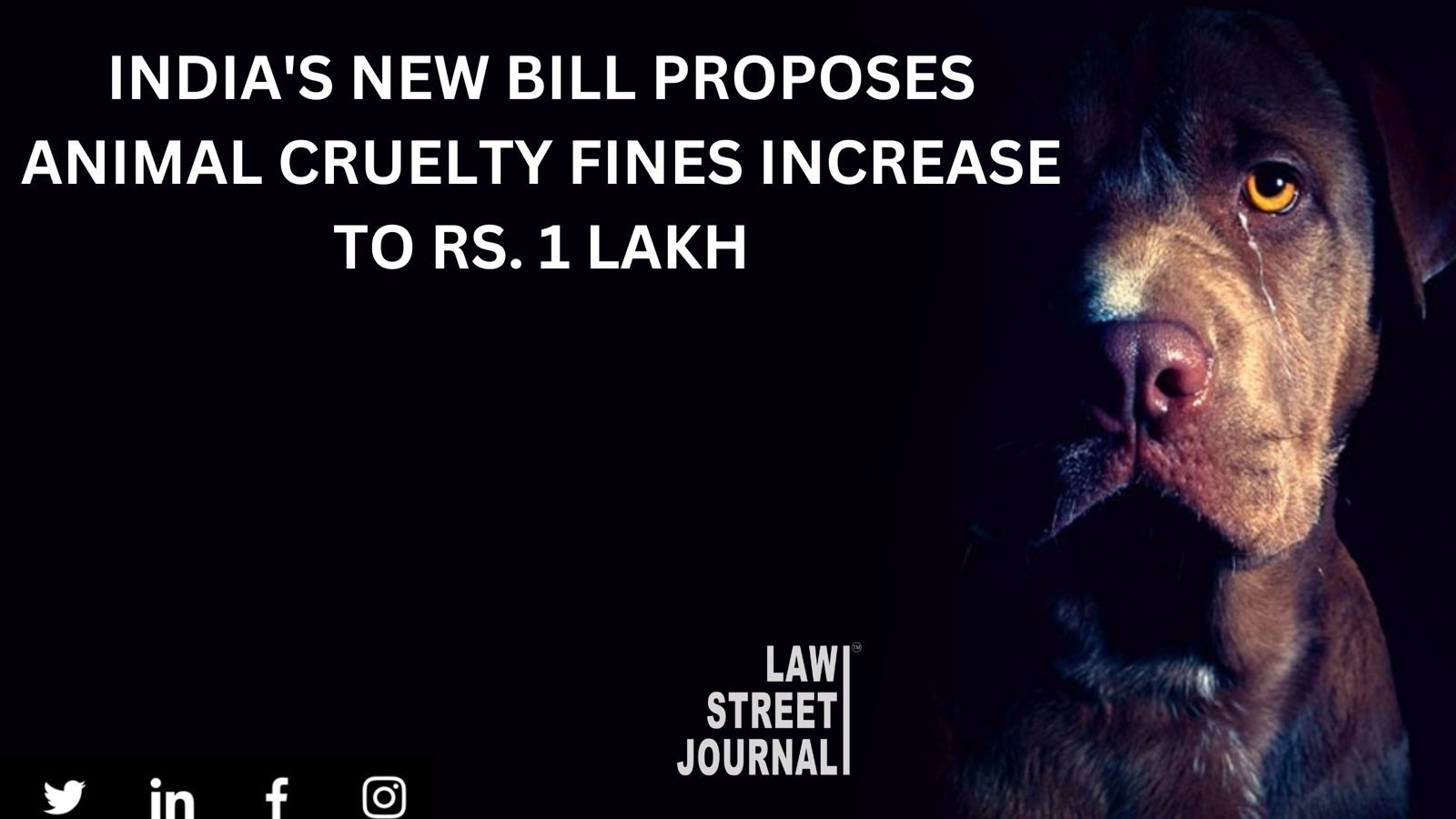NEW DELHI: Trinamool Congress (TMC) MP Saket Gokhale took to his X (formerly Twitter) handle recently to share that he had introduced a Bill introduced in the Parliament to amend the Prevention of Cruelty to Animals Act, 1960 - to increase the fine for inflicting cruelty on animals from Rs. 50 to Rs. 1,00,000.
The primary legislation covering animal welfare in India currently is the Prevention of Cruelty to Animals Act, 1960 which adopts a wide definition of cruelty as any unnecessary pain and suffering to animals. So far, so good.
In the past few decades, man-animal relationship has undergone sea changes across the world, and in India too.
Yet, this nearly-65-year-old law - the primary, and perhaps the only substantive law dealing with animal welfare - remains as it is.
Section 11 of the Act, which provides for a long list of acts and/or omissions that classify as unnecessary pain or suffering lays down that anything from overloading, over-riding, starving, to abandoning, beating an animal, etc all amount to cruelty.
The Act thus makes the owner liable for prosecution if any of the provisions of Section 11 are violated, by providing that the owner shall be punishable in such cases.
It further provides that, an owner shall also be deemed to have committed an offence if he has failed to exercise reasonable care and supervision with a view to the prevention of such offence.
It then goes on to impose a fine which shall not be less than ten rupees but which may extend to fifty rupees, in the case of a first offence, and in the case of a second or subsequent offence committed within three years of the previous offence, with fine which shall not be less than twenty-five rupees but which may extend to one hundred rupees or with imprisonment for a term which may extend to three months, or with both.
While the amounts were indeed heft 64 years back when the law was first introduced, in the present day and age, due to the lack of update commensurate with time, they have been rendered as mere jokes.
Several organizations were thus running a campaign for years, seeking an increase in the fine amount for committing cruelty on mute animals.
The Bill by Gokhale comes in the wake of widespread demands for changes in the law.
In recent years, the issue of animal welfare has gained significant traction worldwide. As societies become more aware of the rights and well-being of animals, legislative bodies have been prompted to enact or amend laws to better protect them.
The increase in fines under the Prevention of Cruelty to Animals Act, 1960, is a step in precisely that direction. The move reflects a growing recognition of the importance of safeguarding the rights and dignity of animals.
The Prevention of Cruelty to Animals Act, 1960, itself used to be a landmark legislation in India providing for the protection of animals, including regulations concerning their treatment, transportation, and use in various activities.
It also empowers authorities to take action against individuals or entities found to be in violation of its provisions.
However, due to the non-increase of the fine amount, the law itself was rendered toothless.
By now imposing heavier penalties, lawmakers like Gokhale seek to discourage inhumane practices and promote a culture of compassion and respect towards animals.
The increase in fines under the Act also serves to align Indian legislation with international standards of animal welfare.
Across the globe, countries are enacting laws and regulations aimed at protecting animals from harm and ensuring their well-being. By updating its legal framework, India demonstrates its commitment to upholding these universal principles and contributing to the global effort to improve the lives of animals.







![Meghalaya High Court Directs State Government to Prohibit Public Display of Animal Carcasses in Meat Shops [Read Judgment]](/secure/uploads/2023/05/lj_1682_43c5fcb2-65e4-4668-9fa9-42e0e45972ef.jpg)
.jpg)







